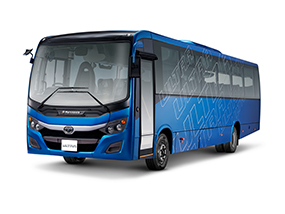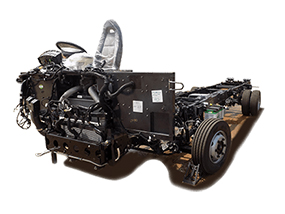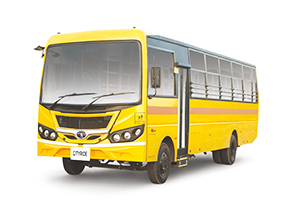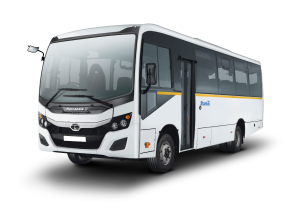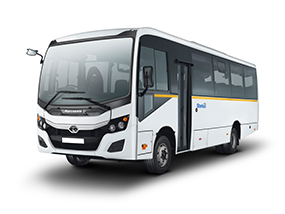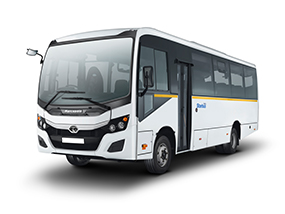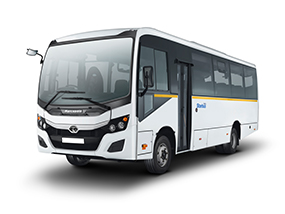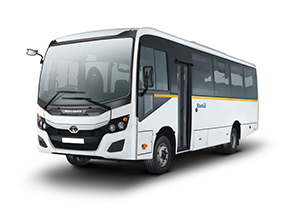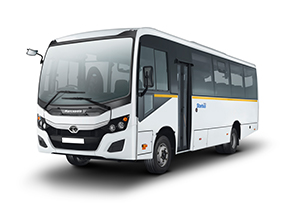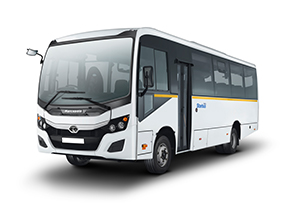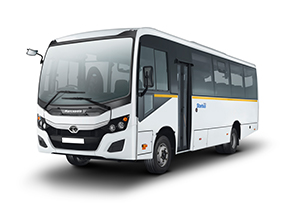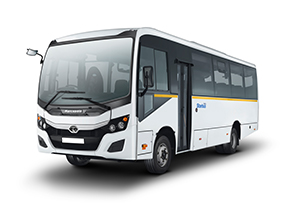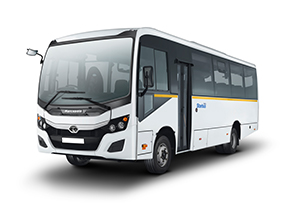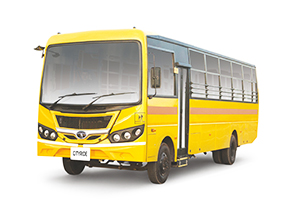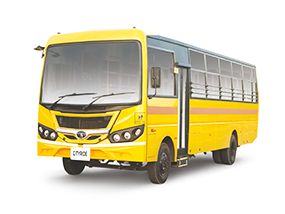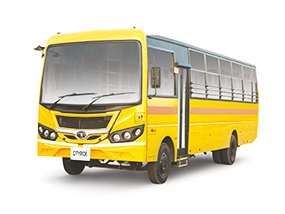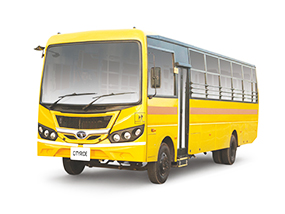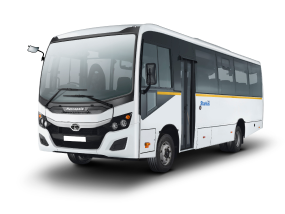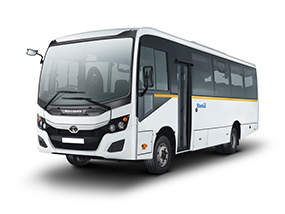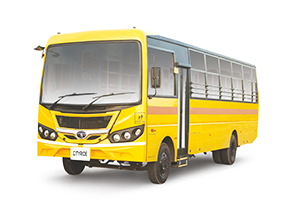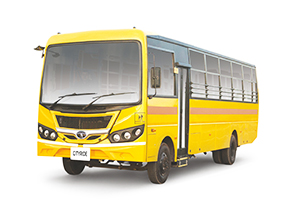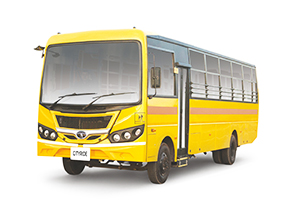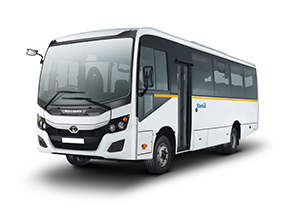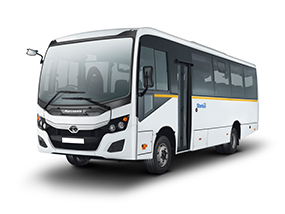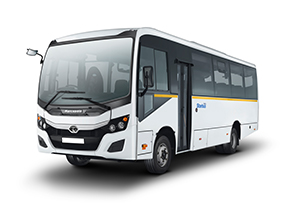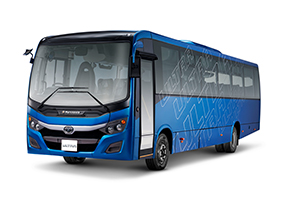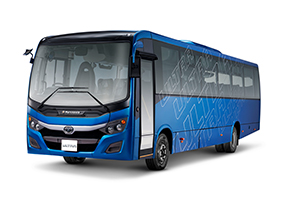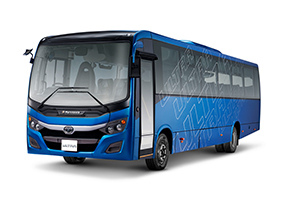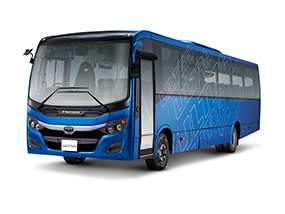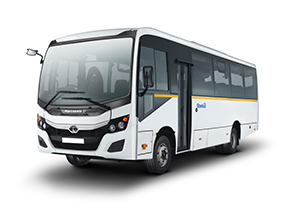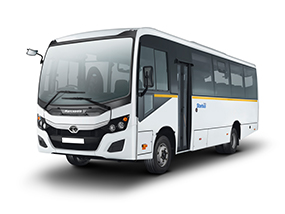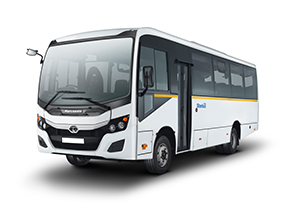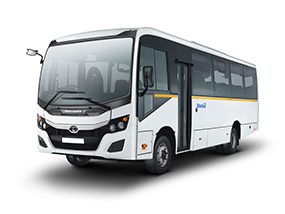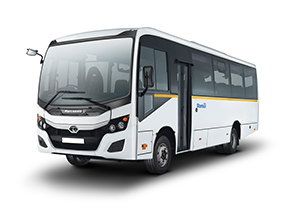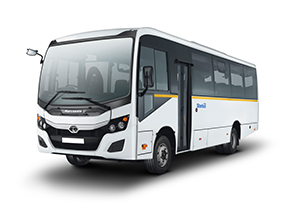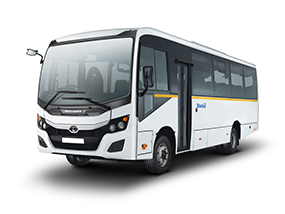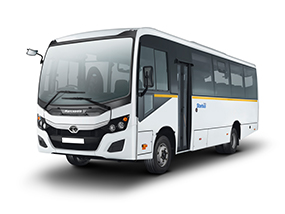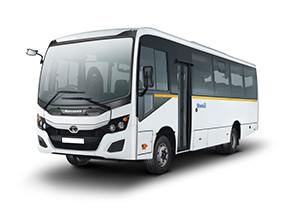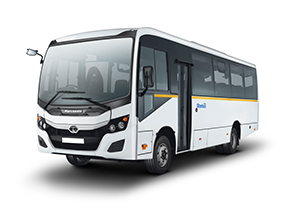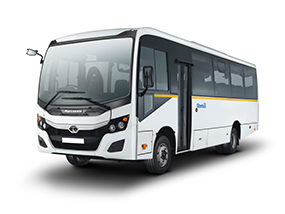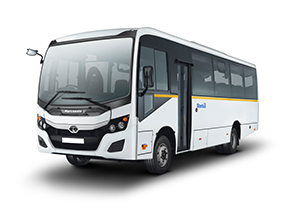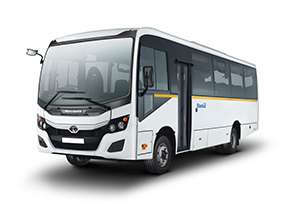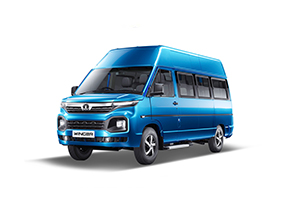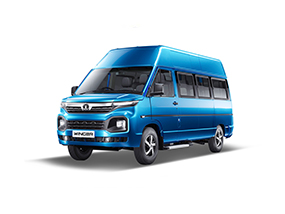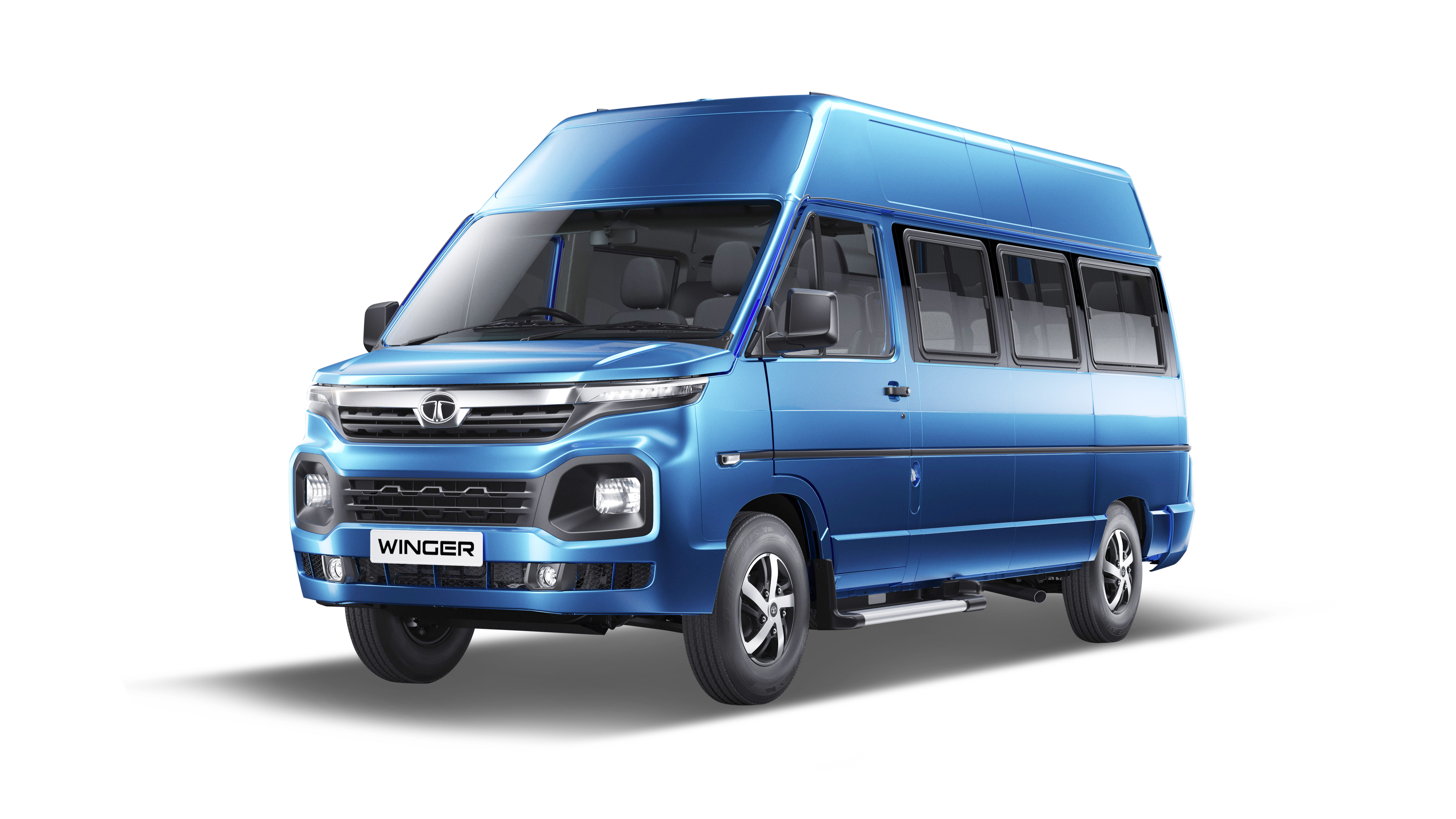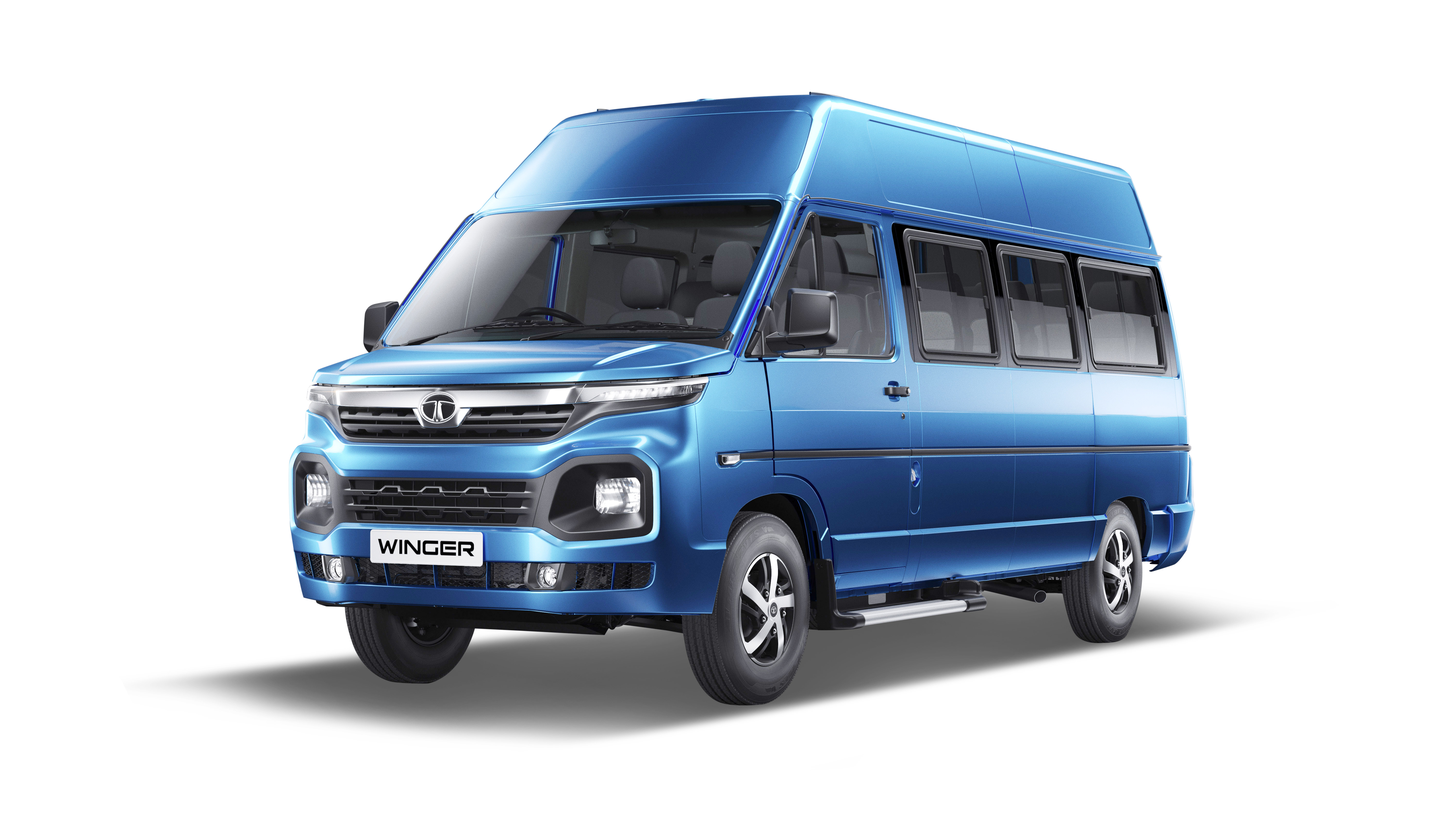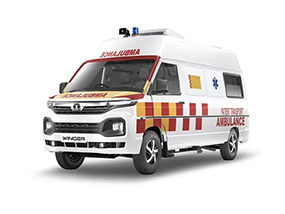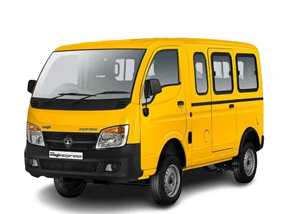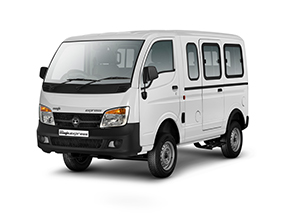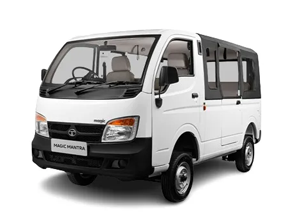Key growth drivers: M&HCV (317%), I&LCV (94%), SCV Cargo & Pickups (84%) and Passenger Vehicles (34%)
In April 2018, Tata Motors registered an impressive growth of 86% at 53,511units as against 28,844 units over last year due to the continued strong sales performance of its Commercial and Passenger Vehicles Business in the domestic market.
Domestic – Commercial Vehicles
Tata Motors’ Commercial Vehicles domestic sales in April 2018 were at 36,276 units, an increase of 126% compared to 16,017 units in April 2017. After the headwinds experienced in April 2017 owing to the Supreme Court ruling on BSIII to BSIV transition, the sales were affected as there was huge pre-buy and no demand as a consequence, and no supply of BSIV vehicles. The growth in April 2018 was on the back of various macro-economic factors like investment in infrastructure development, improved industrial activities, and robust demand in private consumption-led sectors. Other factors like lower interest rates, inflation under control are boosting the economy thereby leading to continuing demand.
The M&HCV truck segment continued its significant growth momentum with 14,028units, an increase by 317% over last year. This is on the back of the government’s focus on infrastructure development, road construction, building of irrigation facilities and housing projects across the country. Additionally, the restrictions on overloading in the States of UP, Rajasthan and Delhi continue to bolster the demand for higher tonnage vehicles. Various sectors like auto carriers, 3PL players, cement, steel and oil tankers are also driving growth.
The I&LCV truck segment reported a strong performance at 3,229 units, growth of 94%, over last year. This growth has been due to new product launches, E-Commerce and increased rural consumption on the back of farm loan waivers, rising rural wages and increased Minimum Support Price (MSP) for crops.
The SCV Cargo and Pickup segment reported a significant growth with 14,620 units, up by 84%, over last year. With the hub and spoke model developing, the small vehicles are in demand for the last mile connectivity across both the rural and urban markets. The need for inter-city and intra-city trips, narrow village roads and long highway hauls carrying small loads drives the demand for SCVs.
The commercial passenger carrier segment posted a growth with 4,399 units, 46% increase over last year. This was led by the robust demand for school buses with the onset of the annual school season.
Domestic – Passenger Vehicles
Tata Motors’ Passenger Vehicles sales performance in the new fiscal started on an encouraging note. The April 2018 sales was at 17,235 units as against 12,827 units, a strong growth of 34% over last year. Tiago continued its strong growth momentum in the passenger cars segment and the strong demand of Nexon resulted in 3X growth of the UV segment.
Exports
The company’s sales from exports (from CV and PV) in April 2018 was at 3,010 units, a growth of 41% over last year.
About Tata Motors:
Tata Motors Limited, a USD 42 billion organisation, is a leading global automobile manufacturer of cars, utility vehicles, buses, trucks and defence vehicles. As India’s largest automobile company and part of the USD 100 billion Tata group, Tata Motors has operations in the UK, South Korea, Thailand, South Africa, and Indonesia through a strong global network of 76 subsidiary and associate companies, including Jaguar Land Rover in the UK and Tata Daewoo in South Korea. In India, Tata Motors has an industrial joint venture with Fiat. Engaged in engineering and automotive solutions, with a focus on future-readiness and a pipeline of tech-enabled products, Tata Motors is India’s market leader in commercial vehicles and among the top in passenger vehicles with 9 million vehicles on Indian roads. The company’s innovation efforts are focused on developing auto technologies that are sustainable as well as suited. With design and R&D centres located in India, the UK, Italy and Korea, Tata Motors strives to pioneer new products that fire the imagination of GenNext customers. Abroad, Tata cars, buses, and trucks are being marketed in Europe, Africa, the Middle East, South Asia, South East Asia, South America, Australia, CIS, and Russia.



